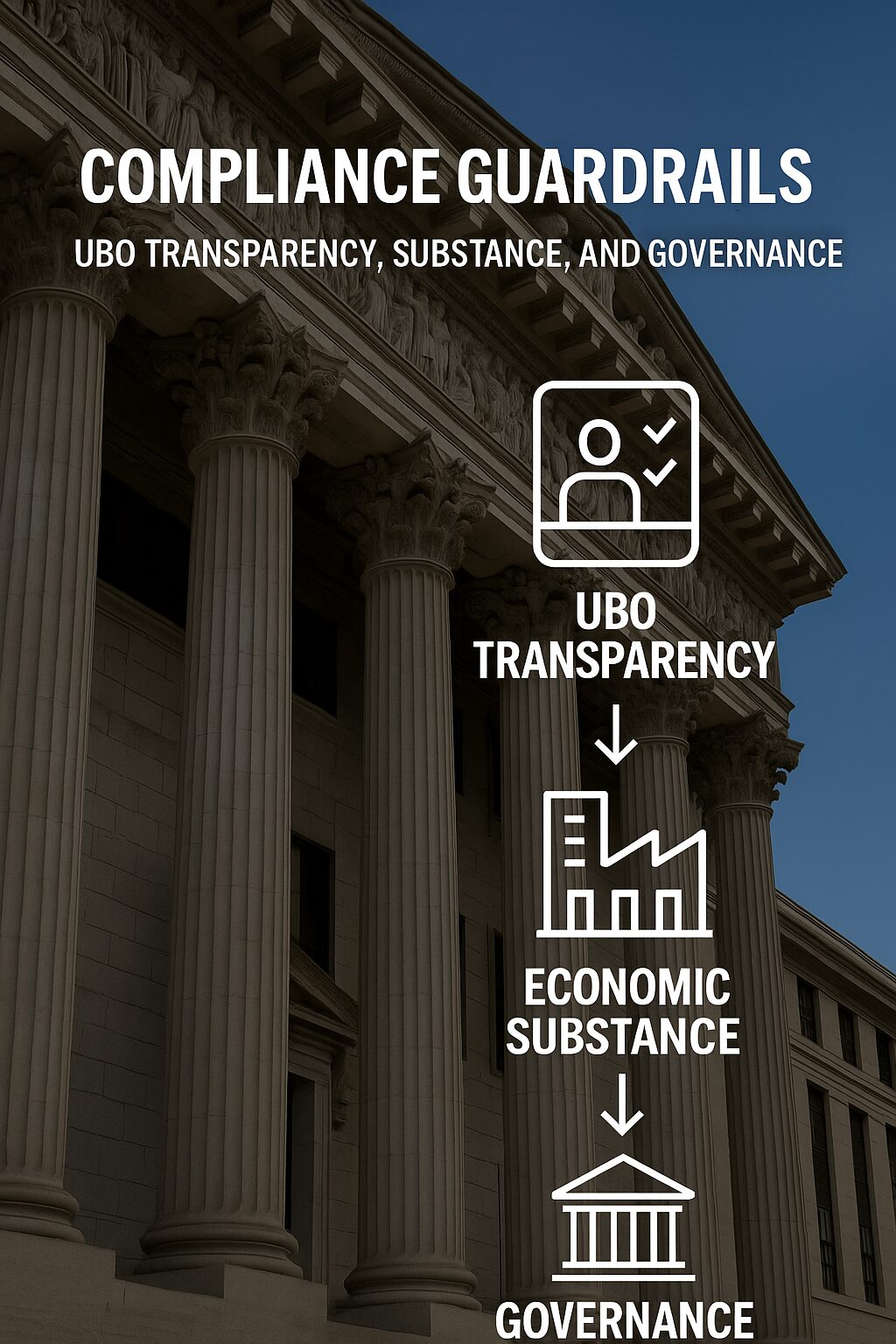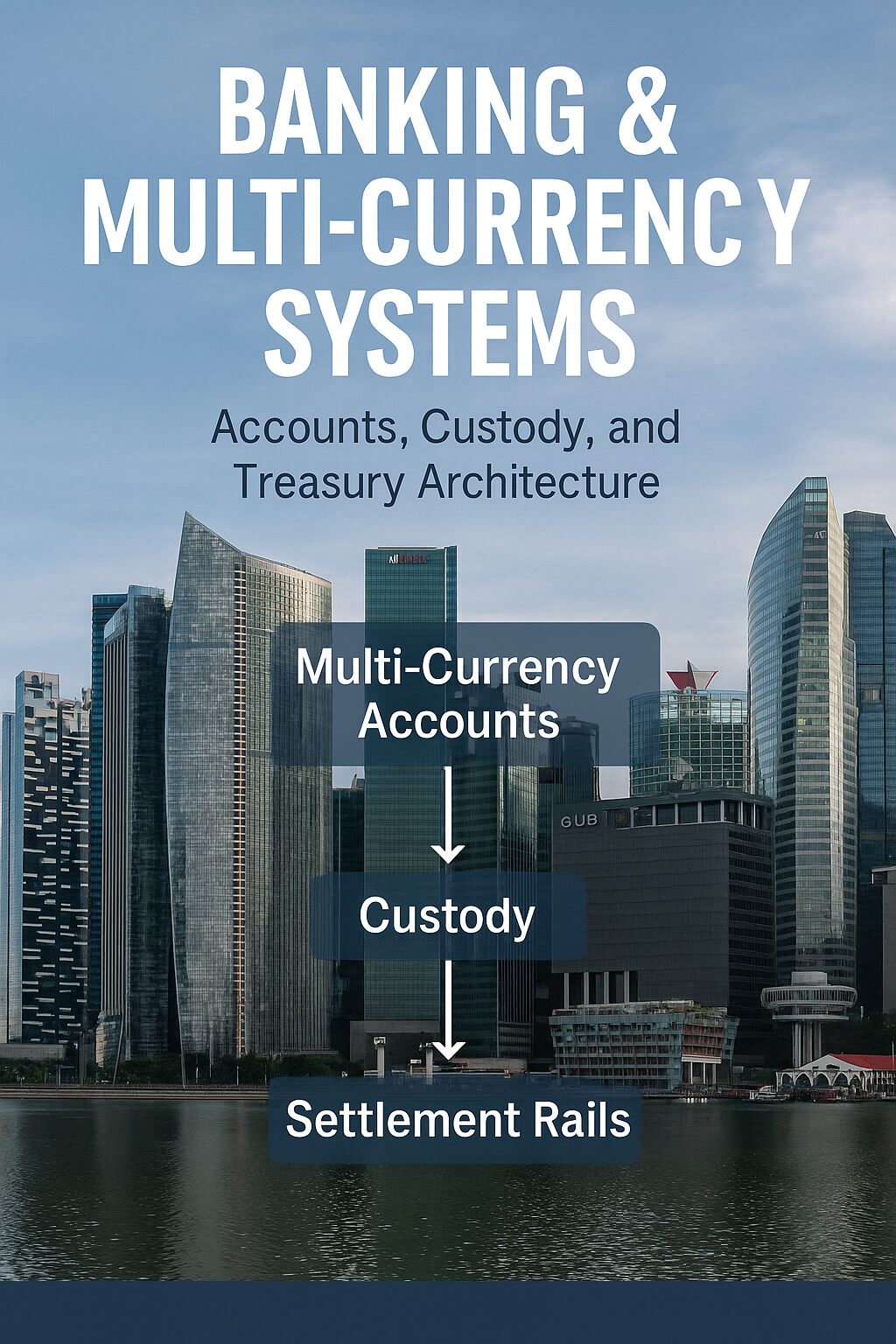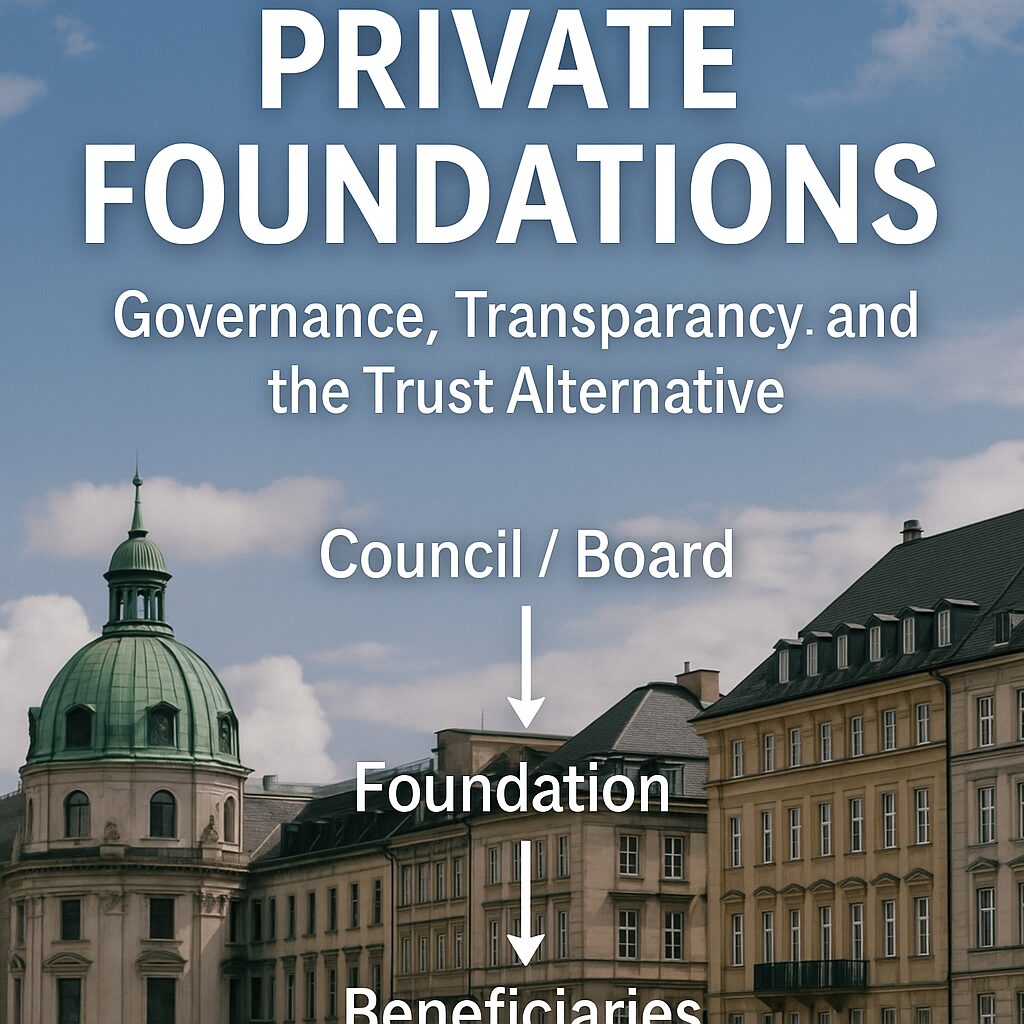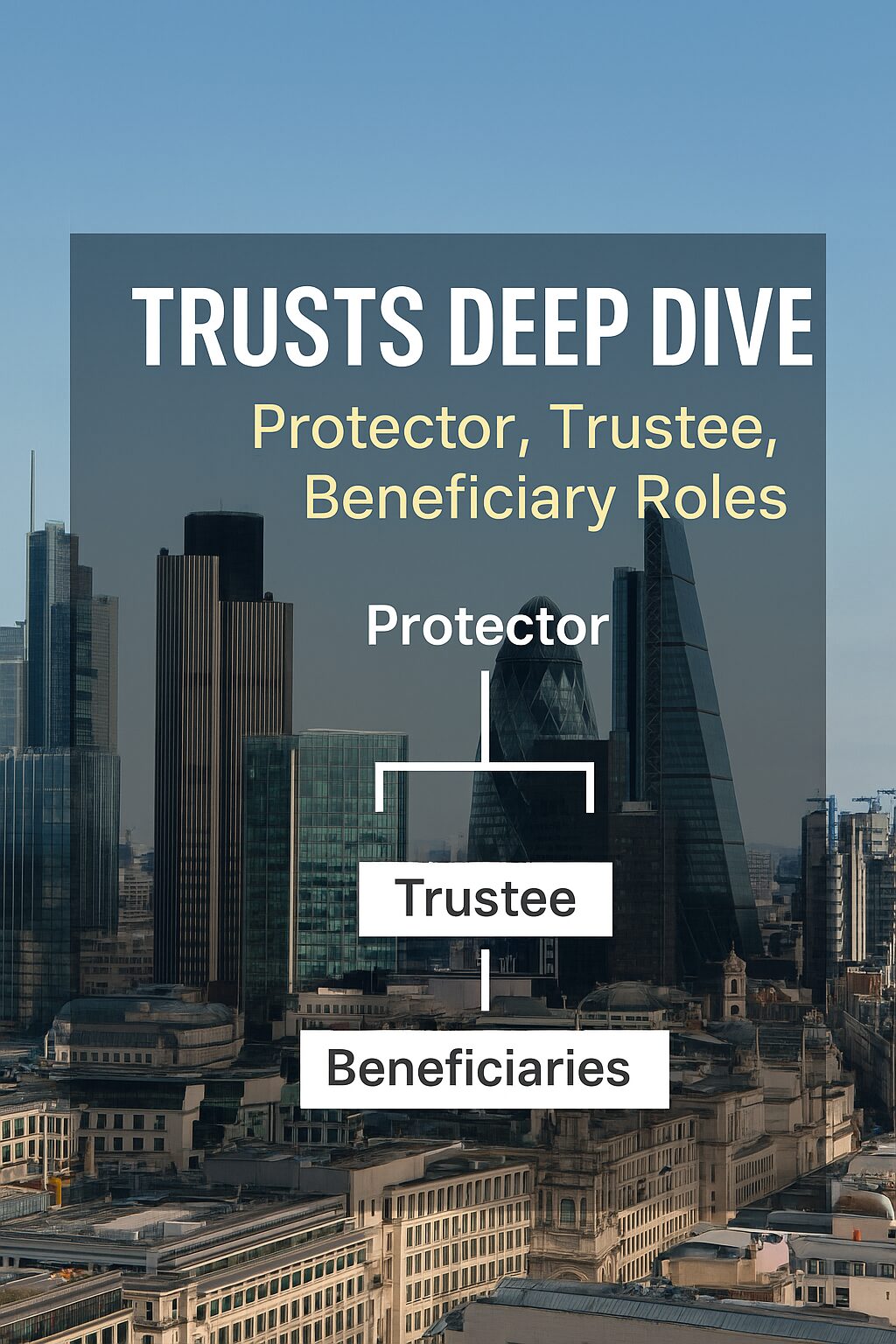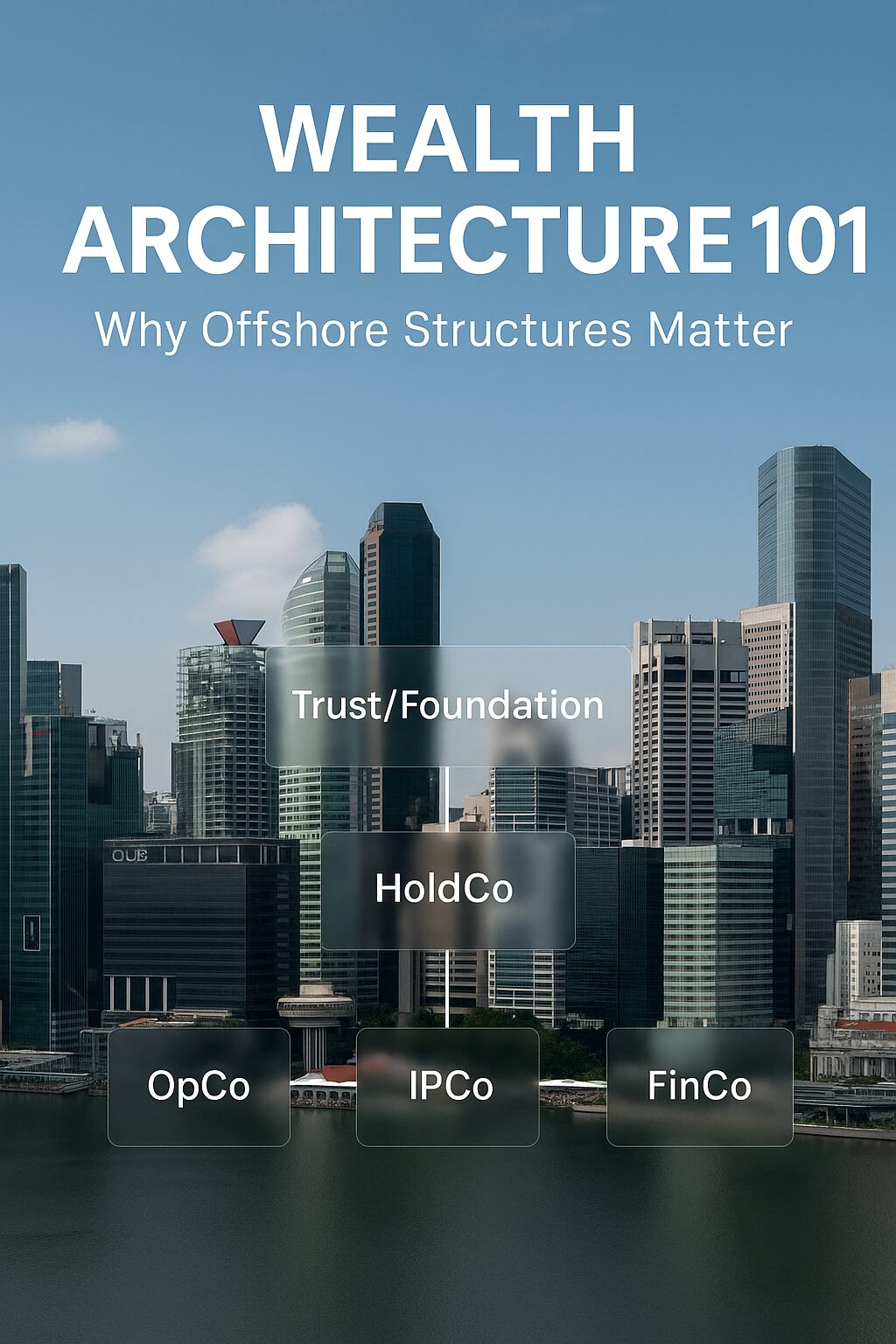Why Compliance Guardrails Define Survival
Every sophisticated offshore structure, no matter how elegantly drawn, lives or dies by one question: Will regulators, banks, and courts respect it as real?
Without guardrails, the structure is a castle built on sand: one regulatory inquiry, one tax audit, or one bank KYC review can dismantle decades of planning. But with UBO transparency, economic substance, and governance evidence, structures survive pressure tests and even gain credibility in negotiations, financing, and partnerships.
This article is not about paperwork for its own sake. It is about compliance as competitive advantage—the brakes and steering that let you drive wealth safely at scale.
Main Body
1) UBO Transparency — The Era of No Secrets
UBO (Ultimate Beneficial Owner) identification has become a universal requirement. Regulators, banks, and counterparties all expect clarity.
Global landscape:
- EU/UK: Central UBO registers; some public, others regulator-only. Court rulings (e.g., EU privacy challenges) mean partial disclosure, but core data remains accessible.
- US: Corporate Transparency Act (CTA) requires BOI (Beneficial Ownership Information) reporting to FinCEN from 2024 onward.
- Asia (Singapore, Hong Kong): Private registers maintained with regulators; available to law enforcement and banks.
- Offshore (BVI, Cayman): Beneficial ownership registers filed confidentially; linked to international cooperation agreements.
- Middle East (UAE): UBO disclosure mandatory for companies in free zones and mainland; non-compliance can lead to license suspension.
Best practice:
- Maintain a UBO pack: certified passport, proof of address, ownership diagram, and signed minutes.
- Update within 7 days of any ownership change.
- Ensure UBO filings are consistent across all jurisdictions—banks spot mismatches immediately.
2) Economic Substance — Proving Reality Beyond Paper
Why substance matters: Tax authorities and regulators target “brass-plate” companies that exist only on paper.
Substance tests include:
- Core Income-Generating Activities (CIGA): In BVI, Cayman, Jersey, companies must show real decision-making, local employees, or managed service contracts.
- Presence metrics: Local directors, registered office, physical space proportionate to activity.
- Decision evidence: Minutes showing key decisions taken in jurisdiction.
Jurisdiction examples:
- BVI/Cayman: Mandatory annual reporting to prove CIGA.
- Singapore: Board meetings must be held locally to qualify for tax residency.
- Luxembourg/Netherlands: Expectation of local directors with expertise, not rubber stamps.
- UAE: ESR (Economic Substance Regulations) reporting for certain activities; non-compliance leads to fines or deregistration.
Practical guide:
- Do not overbuild (a small SPV does not need 10 employees).
- But never underbuild (a billion-dollar FinCo cannot be a PO box).
- Match scale of substance to scale of activity.
3) Governance — Rhythm Over Ritual
Governance credibility comes from cadence, not formality.
Governance calendar (minimum viable rhythm):
- Monthly: Treasury and compliance check-ins.
- Quarterly: Board/council meetings, KPIs, intercompany review.
- Semi-annual: Stress-test drills (bank freeze, tax audit, litigation scenario).
- Annually: Audit, UBO re-certification, regulatory filings, tax returns.
Evidence:
- Signed minutes and resolutions.
- Attendance logs.
- Agendas circulated in advance.
- Decision papers attached.
Red flag: Backdated minutes created in panic—courts and auditors spot them instantly.
4) Accounting & Audit — Turning Numbers into Evidence
Without accounts, an entity looks like a puppet. With accounts, it looks like a business.
Best practices:
- Maintain entity-level accounting with reconciled intercompany flows.
- Consolidate at HoldCo level for a group view.
- Even if not legally required, commission voluntary audits—they pay for themselves in credibility.
- Keep tax memos documenting why positions are reasonable.
Audit readiness checklist:
- Trial balances per entity.
- Intercompany reconciliations.
- Evidence packs (contracts, invoices, bank statements).
- Board approvals for major flows.
5) Compliance Playbooks — Fast Responses Win
A compliance playbook is a ready-made response manual for predictable events.
Scenarios to prepare:
- UBO inquiry: Have notarized ownership charts and certified registers.
- Tax audit: Intercompany agreements, invoices, reconciliations within 48h.
- Bank freeze: Secondary rails activated; evidence of substance provided.
- Regulatory inspection: Document index handed over; no scrambling.
Playbook template:
- Trigger → Responsible owner → Required docs → SLA (hours/days) → Escalation path.
Benefit: Cuts panic, shows regulators you are professional, not evasive.
6) The Document Room — Where Reality Lives
Organize once, reap forever:
- Corporate: Charters, bylaws, registers, appointments.
- Governance: Agendas, packs, minutes, resolutions.
- Compliance: UBO filings, licenses, audits.
- Intercompany: Agreements, memos, invoices.
- Treasury: SOP, reconciliations, bank proofs.
- Tax: Returns, memos, correspondence.
- Risk/Drills: Stress-test logs, incident responses.
Use naming convention: YYYY-MM-DD_Item_Version.
Cloud DMS with restricted access + audit logs recommended.
7) Diagnostics — Five Questions That Predict Resilience
Quarterly self-test:
- Are UBO registers up-to-date and certified?
- Do entities show substance evidence (staff, premises, contracts)?
- Are minutes and resolutions current and linked to decisions?
- Can you produce full evidence packs within 24h?
- Are intercompany flows reconciled and auditable?
Fail any → remediation plan with deadlines, owners, and board approval.
8) Real-World Audit Scenarios
Scenario 1 — Bank compliance review:
A global bank freezes FinCo’s account for review. Within 48h, client produces UBO map, certified register, audited accounts, substance evidence (local staff contracts, office lease). Account re-opened; relationship strengthened.
Scenario 2 — Tax inquiry in EU:
HoldCo receives tax audit. Intercompany agreements, invoices, reconciliations produced. Result: no adjustment, credibility increased.
Scenario 3 — Litigation in Asia:
Family dispute challenges trust-owned assets. Trustee produces years of minutes, audited accounts, distributions consistent with deed. Court upholds structure.
9) Comparative Jurisdiction Snapshot
| Jurisdiction | UBO Register | Substance Requirement | Audit/Reporting |
|---|---|---|---|
| EU/UK | Public/regulator | Yes, especially for HQ entities | Annual accounts required |
| US (CTA) | FinCEN BOI filing | Varies by state | Depends on entity |
| Singapore | Private register with ACRA | Board meetings in SG | Annual return/audit above threshold |
| BVI/Cayman | Confidential register | Economic Substance Law | Annual ES return |
| UAE | Mandatory UBO filing | ESR reporting | Annual audit in many free zones |
10) 30-60-90 Day Compliance Build
Days 1–30:
- Map UBO, certify documents, file registers.
- Draft compliance calendar.
- Stand up DMS.
Days 31–60:
- Update registers.
- Seat local directors/staff.
- Draft intercompany agreements with pricing memos.
- Upload governance documents.
Days 61–90:
- Hold board meeting, minute decisions.
- Run compliance drill (e.g., UBO inquiry).
- Review reconciliations and filings.
- Approve compliance budget.
11) Common Failure Modes and Fixes
- Hidden UBOs → de-banking → Fix: disclose, certify, notarize.
- Shell companies with no substance → struck off → Fix: hire staff, lease office, keep minutes.
- Stale registers → fines and penalties → Fix: update on change, annual review.
- Backdated governance → Fix: calendar meetings, real-time minutes.
- Audit avoidance → court disregard → Fix: prepare voluntary audits.
Conclusion — Compliance as a Value Multiplier
Guardrails transform offshore structures from fragile to resilient. UBO transparency lowers friction. Economic substance shields against “form over substance” attacks. Governance cadence builds credibility. Clean audits prove reality. Playbooks let you respond in hours, not weeks.
These are not costs; they are value multipliers. They improve banking access, financing terms, negotiation power, and survival odds. Without guardrails, your structure will collapse. With them, it becomes antifragile.
Expanded Case Studies
Success — EU Bank Approval Through Clean UBO Map
- Design: Up-to-date UBO registers, certified chart, notarized docs.
- Shock: Bank onboarding review.
- Outcome: Accounts approved in record time.
- Lesson: Transparency accelerates finance.
Success — Substance Saves Cayman Entity
- Design: FinCo employed staff, leased office, filed returns.
- Shock: Tax audit.
- Outcome: Entity respected; no penalties.
- Lesson: Real presence beats suspicion.
Failure — Hidden Owner Leads to Account Closure
- Design: Nominee shareholder hides true UBO.
- Shock: Regulator cross-check.
- Outcome: Accounts terminated.
- Lesson: Concealment is fatal.
Failure — Phantom Governance
- Design: HoldCo with no board minutes.
- Shock: Shareholder lawsuit.
- Outcome: Court pierces veil.
- Lesson: Evidence of governance is essential.
Failure — Audit Avoidance Backfires
- Design: Billion-dollar group refuses audits.
- Shock: Regulator probe.
- Outcome: Disregarded as sham; forced restructuring.
- Lesson: Audits are armor, not cost.
Next Article Preview
Case Studies — Real-World Successes and Failures in Wealth Architecture
In the next article, we will walk through detailed case studies of structures under pressure: how some survived bank freezes, tax audits, and litigation, while others collapsed due to poor governance or hidden owners. You’ll see resilience patterns you can adopt immediately—and red flags you must avoid.
